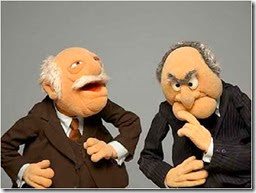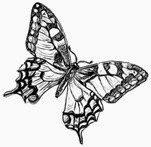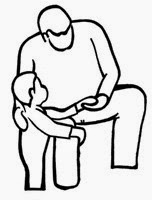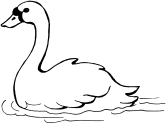Never explain what you do. It speaks for itself. You only muddle it by talking about it. – Shel Silverstein
I’ve mixed feelings about commentaries. I’ve said before that a poem which needs notes to explain it—e.g. Beckett’s ‘Whoroscope’—is basically a bad poem; the poem should stand or fall on its own merits. I do talk about my poetry in some of my articles but they’re not really commentaries. I don’t think I’ve ever dissected a poem for everyone to see. Perhaps I should.
I do what I do mainly for newbies. When I was starting out I hated the fact that everyone seemed to want to keep the hows of writing to themselves. I suppose I get it but it still annoyed me that I had to go it alone. I know writing is a private thing but it’s not as if I was asking them how they had a wank! I like that Kona Macphee produced a downloadable companion to her poetry book Perfect Blue which I reviewed here. In my article I included her poem ‘The earthworm’ which I’ll post again to save you looking it up unless you want to read the whole review:
The earthworm
No
one imagines
an earthworm dreamingit might become a
butterfly or even
just Chuang-
Tzu
few
share its
urge to fashion
finer dirt from dirt,
to pass what
it passes
through
in
the ground
encompassing what’s left
of life’s green surge
and ebb, what’s
left of
you
This is what her companion has to say about the poem:
I like worms. They can eat dirt and make progress at the same time. They're great instructors in the fine art of just-getting-on-with-it.
This poem is about as close to haiku as I seem to get (which is not very close at all, really). Instead of fixed numbers of syllables, it uses fixed numbers of words in each line (which, from my point of view, feels pretty weird; normally when I use fixed line lengths, they're measured by the number of stressed syllables and the actual number of words doesn't matter at all).
Chuang-Tzu is the ancient Chinese philosopher who famously dreamed of being a butterfly, and then awoke to wonder if he was real, or simply the butterfly's dream.
Tim Love has a similar site here devoted to his pamphlet Moving Parts which I also reviewed here.
Part of the thing I have against commentaries is that they change how a person reads a poem. A poem is after all a collaboration between poet and reader and what they make of it will be unique to them. To then come along and say, er no, the poem’s actually about this isn’t really fair because that’s what I’ve made out of it in my capacity as reader plus I have access to all the other stuff that surrounded the writing of the poem which no reader need be privy to.
That said after I’ve read a poem as a poet myself it’s always interesting to learn a bit more about the process, something I might be able to take away and try myself. And by ‘after’ I mean a long time after. Once you’re basically done with it. I’m a student of Beckett as everyone knows and one of the great pleasures with Beckett is studying him. Sometimes I suspect he’s more fun to study than to actually read. One particularly good book I would recommend to fellow scholars is Theatre of Shadows: Samuel Beckett’s Drama 1956-1976 by Rosemary Pountney because 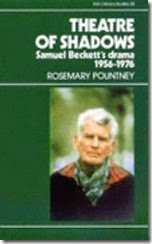 she spends a great deal of time looking at his early drafts and analysing how Beckett wrote. Her breakdown of Lessness is particularly illuminating. But I’d like to highlight something more familiar, Krapp’s Last Tape.
she spends a great deal of time looking at his early drafts and analysing how Beckett wrote. Her breakdown of Lessness is particularly illuminating. But I’d like to highlight something more familiar, Krapp’s Last Tape.
The play was written in 1958—quickly, probably between March and April—so he would’ve been 52 at the time. In the final version the curtain rises on "[a] late evening in the future." It is Krapp’s 69th birthday and he hauls out his old tape recorder, reviews one of the earlier years—the recording he made when he was 39—and makes a new recording commenting on the previous twelve months. What we learn from Pountney is that “the future” once had a rather specific date. Typescript 3 reads as follows:
April 1986. A late envening [sic] in 1985 the nineteen eighties.
In Typescript 4 this has become simply “in the future”. In April 1986 Beckett would’ve been eighty and obviously seventy-nine in 1985. This is typical of the way Beckett worked gradually “vaguening” the text moving from the specific, from him most often, to the Everyman. In Typescript 2 the protagonist’s name is “Crapp” by the way; prior to that he was simply “A”. It’s interesting to see what was going through his mind as he wrote but is it helpful or ultimately distracting? Of course by the time I read Pountney I was very familiar with the play but I do have to say that a part of me doesn’t really want to hang onto the details I’ve learned. Krapp is not Beckett. He is of Beckett but he is not Beckett.
When I produced my poetry collection This Is Not About What You Think a while back I chose the title because it was the perfect title. I’d always imagined my first collection would be called Reader Please Supply Meaning but I’m saving that for my next one. Both titles, however, underline the fact that it’s up to the reader to decide what these poems are ultimately about and that’s all right. As I’ve said already it is interesting to know the background to a poem but that knowledge changes it. I left it out for a reason. It’s called poetic licence: “The freedom to depart from the facts of a matter or from the conventional rules of language when speaking or writing in order to create an effect”.
Let’s have a look at a few from the collection:
Father Figure
This is the floor beside my bed
where I kneel to talk to God.
If I press my ear to the floor.
I can hear Him talk to Mum.
About me. It is always me.
I know what God looks like.He looks just like my dad.
I heard him tell my mum:
"In this house I am God."
I heard that through the floor.
Now I only pretend to pray
because I don't want my dad
to really hear the things I think.
Now he's not sure I'm so bad.
I don't want him to know I am.
I just want my dad to love me.
It’s a common enough image, the child kneeling beside his or her bed, hands pressed together—“God bless Mummy, God bless Daddy”—but the simple fact is I never did. I was brought up by god-fearing parents—that is true enough—but they never actually taught me how to pray. Ridiculous, I know! So all the praying stuff in the poem is made up. I never even attempted to talk to God until I was a grown man. The image of me lying with my ear pressed to the bedroom floor—which was directly about the living room—is accurate but that’s not where I heard my dad say, “In this house I am God.” That was years later. He was in the kitchen and I was standing in the hall. I’m not actually sure who he was addressing. I don’t think it was me directly. I get the feeling my mum and probably my brother were there but again I have no idea what prompted his declaration although I do know the scriptural precedent for him feeling he had the right to say that and mean it. Now the lines:
I can hear Him talk to Mum.
About me. It is always me.
suggest strongly that it’s Dad doing the talking whereas the reality was it was Mum talking to him. You see my dad’s name is also James so when I heard her say, “Jimmy,” I assumed she was telling on me—“Our Jimmy did this… Oh, Jimmy did that…”—when actually all she was doing was addressing her husband by name. More fabrication. The sentiment of the poem is an honest one. I did want my dad to love me. I always wanted him to love me for being me though and not for being what he wanted me to be and the truth is he did always love me but he never got me and that was the best I could ever hope for.
Tools"Just because you have a hammer
it doesn't make you a joiner."
My father had his way with words.
So I took a handful of nails
and boarded up my heart
against him and against the world.
And safe on the inside I yelled:
"Screw you!"
but he was never one for puns.
This isn’t even about my dad. I was corresponding with a girl at the time—I believe her name was Connie—and she was talking about her relationship with her father so I wrote her this poem. Not sure why I didn’t include a dedication—not like me—but I didn’t and so that’s how the poem stands. My own dad was a mechanic—he looked after machines in a cotton-spinning mill and later in a wool-spinning mill and apparently there’s a world of difference between them—and the truth is he really didn’t have a way with words but he could quote scripture and often did. I might not have been writing about my dad but I was accessing the same sort of feelings I had towards him. I understood where Connie was coming from which is why the poem worked so well.
True Love II
My father had a heart transplant.
Years ago, before I was born,
doctors took
out his broken heart
and gave him a machine instead.
The strange thing about this machine
was it was
powered by sadness.
Of course he was always just Dad,
but, when I discovered the truth,
at first I
hated the sadness
then I became thankful for it
because as long as I could see
him be sad
he would be with me.
And so I made it my job to
make him the saddest dad in the
whole wide world.
What else could I do?
My dad never had a heart transplant. He did have two heart attacks and the second one killed him. But this poem isn’t about him. It’s not even me talking. It’s my daughter. “How the hell were we supposed to know that, Jim?” I hear you say and the simple answer is: You weren’t. I excluded that from the poem. Of course this is a metaphorical poem and the simple fact is my daughter makes me both proud and happy—although I’d be prouder and happier if she read my damn posts more often—but ask yourself: “What would I do if my dad got fitted with some weird mechanism powered by sadness?” It’s preposterous—it’s meant to be preposterous—but if you loved him—if you really loved him—wouldn’t you go out of your way to make him as sad as you could? How many kids nip their parents’ heads about their salt intake or their cholesterol or the need to exercise; they make them miserable but they do it out of love because they don’t want them to die and miserable living parents are better than happy dead ones. Love’s a funny thing. And then there are the kids who run wild and break their parents’ hearts and you’d think they were deliberately trying to make them sad.
Silent Echoes
My father lost his hearing
soon after he retired
or rather he gave it up.
At first his hearing became
selective as befits
a man of a certain age
but over time he lost all
interest in listening and
his ears forgot how to hear.
He wrapped himself in silence
like an old comforter
to protect himself from us
and from our onslaught of words.
Sundays I'd sit with him
and we'd feed the swans on the
pond outside of the hospice.
From a distance I'm sure
we looked like some old couple.
with nothing more to say and
no desire to say it
which was not far from the truth.
My dad did go deaf. He also went blind. He never went into a hospice. He died in the front room of his house. It wasn’t even his usual chair. He did go with my mum to feed the swans in the pond behind the sports centre. They’d come up out of the water and take the bread straight from his hand. Nipped him more often than not but my dad had tough hands, like leather, so it didn’t bother him too much. I don’t recall Mum ever feeding the swans after he died. I certainly never went with her. Or maybe she just started feeding the swans on the river as it would’ve been easier for her to reach on her own. Can’t imagine her not feeding something.
Sometimes when I used to visit my dad Mum would be out—she couldn’t let a day go by without a tour of her precious second-hand shops—and Dad would just be sitting there in silence: no TV, no radio, no audio books (he never really took to them). He had indeed wrapped himself in silence but I don’t think it was much of a comfort to him. And we certainly never went on at him although when we were kids we did—I have the audio tapes to prove it—and so I do suppose in that respect the peace and quiet had a certain belated comfort to it. That’s the thing about life: it comes in chunks, hard to chew and difficult to swallow.
Are these poems any clearer now or have I spoiled them for you? I can’t read them without knowing all the stuff I know. I knew my father for forty-odd years. Just the word ‘dad’ is hugely evocative but then ‘dad’ means something to everyone and there’ll be people out there who read these poems and go: “My dad was nothing like that.” Well, good! Hopefully when you say that you mean he was better and not some homicidal maniac. At least my dad wasn’t that.
I say I’m not an autobiographical writer and I still stand by that. Like all writers I use what material comes my way. I’ve loved several women in my life and I’ve been around people who’ve been in love, I’ve watched TV shows and films depicting people in love and read books about love and so I’ve built up a composite picture of what ‘in love’ means and who knows you might feel exactly the same as I do about love and you might feel the same about your dad and your mum and maybe, like me, you never had a pogo-stick growing up and never learned to skate but if you didn’t you can still imagine what it was like but imagining’s not knowing; don’t expect it to be. And even now you know the things I’ve told you, you don’t know. You weren’t there. Make the poems your own.
